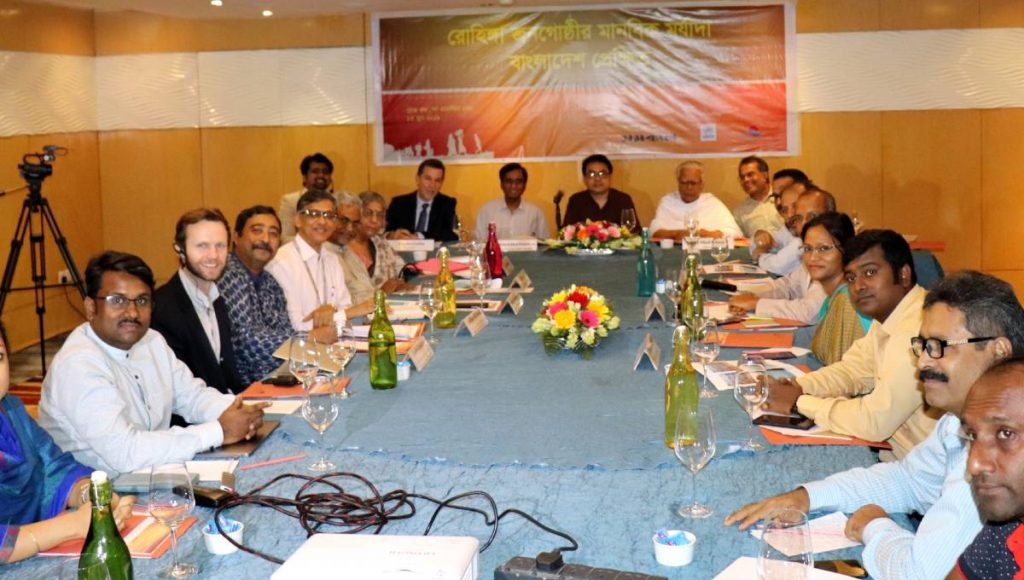Dhaka, June 14 (UNB)— Speakers at a roundtable suggested engaging Rohingyas in multi-year planning, providing formal education and more support as their repatriation continues to be delayed.
They also urged involving Rohingyas with meaningful and productive activities.
National Daily Samakal organised the roundtable titled ‘Human Dignity to Rohingya People: Bangladesh Perspective’ in cooperation with Coast, an NGO working in Cox’s Bazar, and sponsored by UNHCR, the UN Refugee Agency.
It was held in a city hotel on Thursday moderated by Mustafiz Shafi, acting editor of Daily Samakal, and Rezaul Karim Chowdhury, executive director of Coast.
Rejecting the prevailing negative perceptions about Rohingyas, Refugee Relief and Repatriation Commissioner Abul Kalam said Rohingyas are becoming victims of atrocities and Myanmar’s negative propaganda.
He said it was important to speak about the situation accurately based on facts.
Steven Corliss, the UNHCR country representative, said that the root cause of Rohingya refugee’s displacement and the solutions to this crisis lie in Myanmar.
Praising the generous response of the Bangladeshi people he suggested keeping a distinct focus on supporting the host communities to ensure peaceful social cohesion as the response continues.
Sayed Abul Maksud, renowned columnist, urged to keep the human spirit that the nation and Prime Minister Sheikh Hasina has shown in opening the border.
Shirin Haque of Narripakkha said, “Rohingya children and adolescents should be provided higher education. They should be brought under health care training and in productive work to save them from traffickers and religious fanatics.”
Barrister Manzoor Hasan of BRAC University pleaded for Rohingya people’s voice in the decision making.
He also urged providing technical education for the Rohingya youths, who constitute more than half of the forcibly displaced Myanmar population.
Asif Munier, refugee and migration expert, said that Bhasan Char or other similar projects will not solve the problem and suggested the authorities concerned to create multi-year planning for a comprehensive response.
Mustafiz Shafi of Samakal said, “We should be united on the issue to keep up our spirit as a humanitarian state.”
Nayeem Gowhar, Julfikar Ali Manik of New York Times and Boishakhi TV and a long-term researcher on the Rohingya issue, and Abu Morshed Chowdhury, President of Cox’s Bazar Chamber of Commerce and Industry, also took part in the discussion.
Mujibul Haque Munir of Coast presented the keynote questions to the participants.




